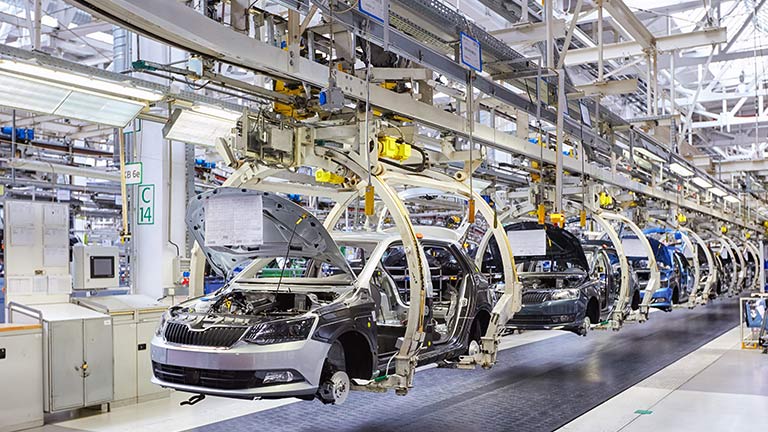A confluence of technology advances has led to a surge in industrial automation solutions. Manufacturers can now take advantage of Industry 4.0 models and leverage advanced data analytics, artificial intelligence, machine learning and Industrial IoT technologies to enhance manufacturing processes and automate a wide range of operations.
One of the fastest-growing industry sectors, industrial automation is reshaping the ways that manufacturers operate and produce goods. Spurred by new technologies that add intelligence and agility to processes, enterprising businesses are creating connectivity between smaller components, sensor networks, machines and robotic-controlled assembly lines, ushering in an era of smart manufacturing.
Avnet Embedded Solutions provides the embedded computing technologies and systems to help you develop control and manufacturing equipment. For example, to improve the efficiency and quality of electronics manufacturing, we helped develop a server that collects data to intelligently refine the processes on the manufacturing line, delivering atomic-level precision. Opportunities to control and improve industrial processes exist in a wide range of areas, such as power station controls, pump controls, weld monitors, intelligent systems for the flexible factory, tablet applications for tracking processes on the factory floor, data-driven safety systems and more.
Adoption of Industry 4.0 solutions is accelerating, moving rapidly beyond proof-of-concept initiatives to real-world implementations. Demand for embedded systems in industrial environments is escalating, but effective solutions require a combination of longevity, ruggedization and visualization, areas in which Avnet Embedded Solutions expertise can help you meet the challenges. With Avnet as a trusted partner, you gain the freedom to innovate on new applications while we help you identify, build, deliver, and support your product.
Application examples
Tablet applications to inspect machines and verify the integrity of parts on a production line help ensure production efficiency. Perceptive machines that can use 3D imaging, interior mapping, depth perception and feature tracking improve warehouse and factory operations. Robots with computer vision can navigate factory floors and storage areas, learning how to move through unfamiliar surroundings. Drones are able to assist in inspecting difficult to access equipment, such as telecommunications towers, oil rigs, and electrical grid components. The opportunities for automating every aspect of the manufacturing line, collecting data from sensors and adding intelligence through analytics, are numerous, providing wide-ranging benefits to manufacturers. Specialized applications include semiconductor manufacturing and equipment for monitoring and control.


